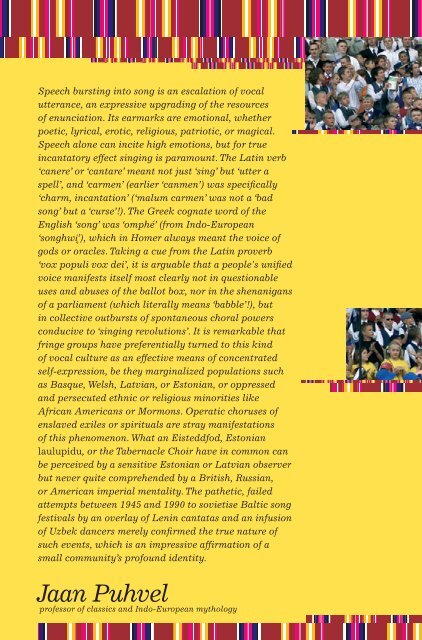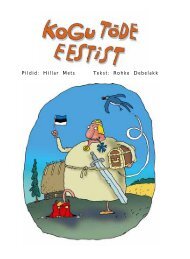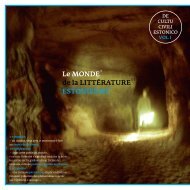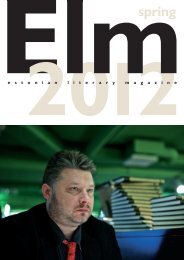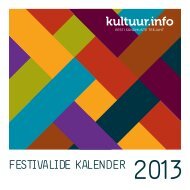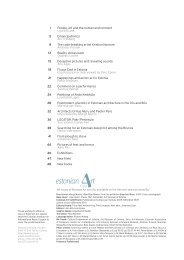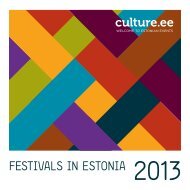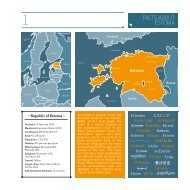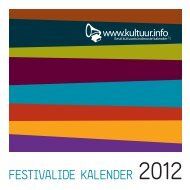You also want an ePaper? Increase the reach of your titles
YUMPU automatically turns print PDFs into web optimized ePapers that Google loves.
Speech bursting into song is an escalation <strong>of</strong> vocal<br />
utterance, an expressive upgrading <strong>of</strong> <strong>the</strong> resources<br />
<strong>of</strong> enunciation. Its earmarks are emotional, whe<strong>the</strong>r<br />
poetic, lyrical, erotic, religious, patriotic, or magical.<br />
Speech alone can incite high emotions, but for true<br />
incantatory effect singing is paramount. The Latin verb<br />
‘canere’ or ‘cantare’ meant not just ‘sing’ but ‘utter a<br />
spell’, and ‘carmen’ (earlier ‘canmen’) was specifically<br />
‘charm, incantation’ (‘malum carmen’ was not a ‘bad<br />
song’ but a ‘curse’!). The Greek cognate word <strong>of</strong> <strong>the</strong><br />
English ‘song’ was ‘omphé’ (from Indo-European<br />
‘songhwį’), which in Homer always meant <strong>the</strong> voice <strong>of</strong><br />
gods or oracles. Taking a cue from <strong>the</strong> Latin proverb<br />
‘vox populi vox dei’, it is arguable that a people's unified<br />
voice manifests itself most clearly not in questionable<br />
uses and abuses <strong>of</strong> <strong>the</strong> ballot box, nor in <strong>the</strong> shenanigans<br />
<strong>of</strong> a parliament (which literally means ‘babble’!), but<br />
in collective outbursts <strong>of</strong> spontaneous choral powers<br />
conducive to ‘singing revolutions’. It is remarkable that<br />
fringe groups have preferentially turned to this kind<br />
<strong>of</strong> vocal culture as an effective means <strong>of</strong> concentrated<br />
self-expression, be <strong>the</strong>y marginalized populations such<br />
as Basque, Welsh, Latvian, or Estonian, or oppressed<br />
and persecuted ethnic or religious minorities like<br />
African Americans or Mormons. Operatic choruses <strong>of</strong><br />
enslaved exiles or spirituals are stray manifestations<br />
<strong>of</strong> this phenomenon. What an Eisteddfod, Estonian<br />
laulupidu, or <strong>the</strong> Tabernacle Choir have in common can<br />
be perceived by a sensitive Estonian or Latvian observer<br />
but never quite comprehended by a British, Russian,<br />
or American imperial mentality. The pa<strong>the</strong>tic, failed<br />
attempts between 1945 and 1990 to sovietise Baltic song<br />
<strong>festival</strong>s by an overlay <strong>of</strong> Lenin cantatas and an infusion<br />
<strong>of</strong> Uzbek dancers merely confirmed <strong>the</strong> true nature <strong>of</strong><br />
such events, which is an impressive affirmation <strong>of</strong> a<br />
small community’s pr<strong>of</strong>ound identity.<br />
Jaan Puhvel<br />
pr<strong>of</strong>essor <strong>of</strong> classics and Indo-European mythology


